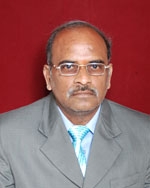 In this month’s column of ‘Meet the Media’, Richa Seth introduces us to Kamalika, Bhhatacharya, Sr. Content Associate, Minglebox.com. Read on to understand her view on PR profession
In this month’s column of ‘Meet the Media’, Richa Seth introduces us to Kamalika, Bhhatacharya, Sr. Content Associate, Minglebox.com. Read on to understand her view on PR profession
- Could you please update us with your career journey?
I started my career with The Statesman, Kolkata as a reporter in 2006, then became a sub editor cum reporter working with features department. Thereafter worked for a magazine called Mentor which caters to the school principals and the education fraternity. Currently working with Minglebox.com – the no.1 educational website in India as a Sr. content associate. I also write feature articles for the education supplement of The Statesman.
- What methods do you use to generate/find stories?
Use direct contacts, field reporting and follow up on current stories. Of course leads from PR contacts does add value in generating stories.
- What are your views about the PR fraternity?
I believe the PR executives are of great support to all media. PR executives provide a lot of useful information and come up with new and innovative story themes which can be very useful to the media. They are of immense help to reach out various companies and their spokesperson in a much easier way.
- How useful / helpful are they to you as a source of information?
As mentioned earlier they are very useful as they provide new and innovative story themes, which can churn out great stories. They are of immense help to reach out various companies and their spokesperson in a much easier way.
- What is it that you expect when interacting with a PR professional? Is that fulfilled?
I expect the professionals to communicate correct and complete information about their client and also not push for coverage without the news providing value to the readers. It is somewhat fulfilled but still needs to be worked upon.
- What are the most preferred method, mode and time to get in touch with you?
Email is the best way always…
- What is the most annoying thing that PR professionals do when pitching to the journalist?
Sometimes PR professionals push to much and keep following up for stories that does not merit coverage.
- 8. What is it that the PR professionals need to improve on to meet journalists’ expectations and strengthen the professional bond?
PR professionals should keep the journalists posted on all events before time. They should also introduce and provide complete information about their clients to the journalist of the concerned beat, so that the journalist can get back when doing any industry story or wants to do a feature story.

